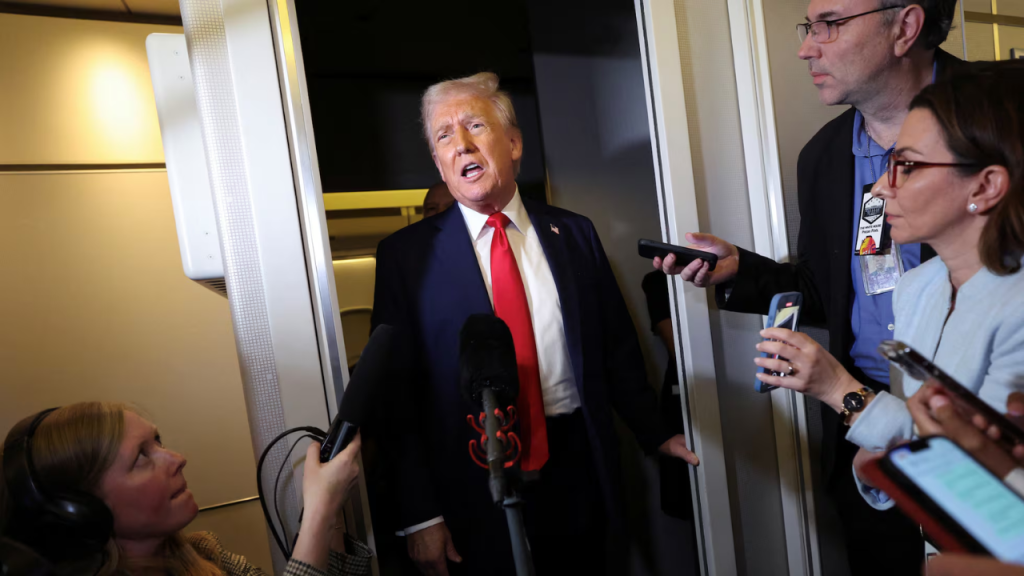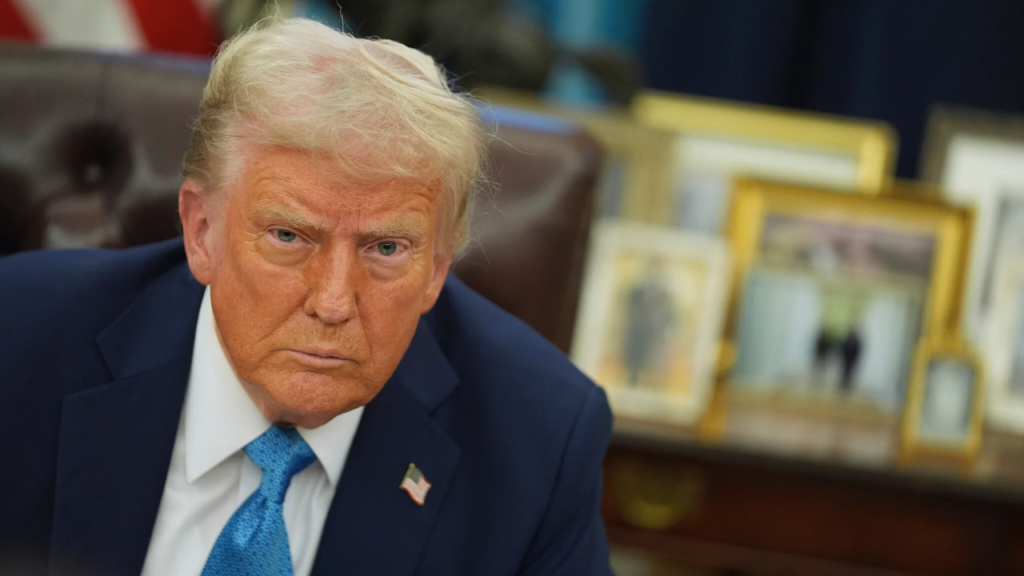
America’s self-proclaimed dealmaker-in-chief is now throwing a wrench into Wall Street’s business flow.
When Donald Trump returned to the White House, many in the financial world anticipated a surge in IPOs, dealmaking, and capital raising — a wave of activity expected to energize U.S. stock exchanges and investment firms alike.
But just five months in, Trump’s sweeping trade war is chilling the deals market instead. Several companies, including StubHub, Klarna, and eToro, have paused their plans to go public.
Corporate leaders are becoming increasingly hesitant to greenlight investments, signaling a potential long-term freeze in mergers and acquisitions.
“People are paralyzed,” said West Riggs, head of equity capital markets at Truist Securities. “Things won’t change overnight — we’re talking weeks or even months before confidence returns.”
The turmoil reflects just how disruptive Trump’s rapid-fire tariff announcements and trade negotiations have been for corporate planning.
Companies across the U.S. are scrambling to figure out how tariffs might impact their supply chains, costs, and bottom lines — all while grappling with the uncertainty of Trump’s temporary 90-day pause on reciprocal tariffs.
And while Wall Street is often perceived as a world apart, financial leaders warn that the repercussions are widespread.
“This isn’t just Wall Street versus Main Street,” BlackRock CEO Larry Fink said. “Market instability hits retirement savings for millions of everyday Americans.”
JPMorgan Chase CEO Jamie Dimon echoed the concern, noting that the dealmaking slowdown isn’t limited to large firms. “It’s not just big ones — middle-market companies are pulling back too,” he said.
Riggs pointed out that without new capital, new businesses can’t form, and growth stalls.
Delta Air Lines recently revised its financial guidance due to tariff uncertainty. Walmart told investors its forecast for operating income has become increasingly unpredictable.
And Dimon expects more companies to revise or withdraw their projections in the coming weeks.
Despite this, the Trump administration has shown little concern for how tariffs are affecting Wall Street. Officials like Treasury Secretary Scott Bessent and press secretary Karoline Leavitt maintain the focus is on “Main Street” — not the financial elite. The White House declined to comment for this story.
“The president is committed to renegotiating global trade in favor of American workers,” Leavitt said during a press briefing Friday.
Ironically, big banks aren’t feeling much pain just yet. JPMorgan and Morgan Stanley posted strong first-quarter earnings, thanks in large part to robust trading revenue.

Their investment banking divisions even saw some growth, despite the broader market anxiety.
Still, market volatility remains a serious concern. While the S&P 500 ended last week up 5.7%, it’s still nearly 13% below its February peak. Government bond markets have also taken a hit, with yields on 10- and 30-year Treasuries nearing highs not seen in years.
Initially, Wall Street had hoped Trump’s deregulation and tax-cutting agenda in 2025 would help revive dealmaking, especially after years of aggressive antitrust enforcement under former President Joe Biden.
The IPO market had already suffered due to the 2022 market crash, which discouraged companies from going public over valuation fears, said Renaissance Capital strategist Matthew Kennedy.
But renewed trade uncertainty and rising market volatility are making companies rethink their strategies once again.
“Nothing slams the brakes on IPOs like a volatility spike,” Kennedy said.
Indeed, the Cboe Volatility Index — a widely watched measure of market fear — recently climbed to its highest level since the early days of the COVID-19 pandemic.
Even so, many companies are still eager to launch IPOs or pursue mergers once the environment stabilizes.
Morgan Stanley CEO Ted Pick noted on a recent earnings call that while some clients are facing rough patches, the long-term outlook remains cautiously hopeful.
“Is it bumpier for some clients? Sure,” he said. “But we’re still cautiously optimistic we won’t tip into recession. We’re moving forward.”
As for when companies might finally get the clarity they need, a senior official from a major Wall Street trade group said the answer lies in one place: the Oval Office.
“One person is making the calls,” the official said. “There’s not much anyone else—even in the Cabinet — can do until Trump makes his move.”
